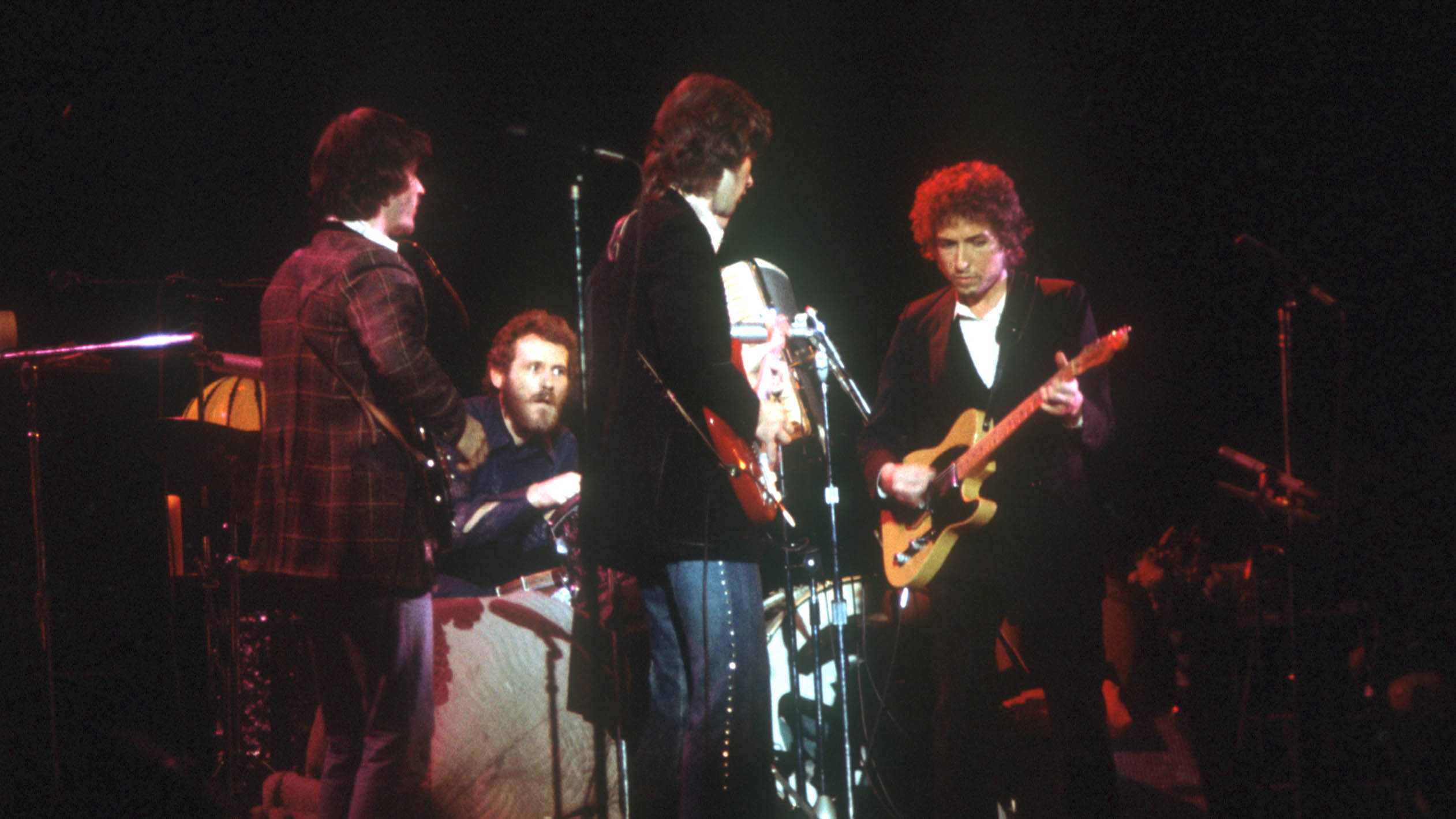
Time is relative. It moves at different speeds depending on the person experiencing it.
Between 1962 and 1966, Bob Dylan (along with the Beatles) drove counter culture. He embodied it. Then having reached a point after 1966’s Blonde On Blonde where his every song and public utterance was being minutely scrutinised for significance, a mysterious silence suddenly descended.
The official reason given was that Dylan had suffered a serious motorcycle accident though this has never been confirmed. Whatever the truth, Dylan retreated to upstate New York, cut the Basement Tapes with the Band, and to all intents purposes seemed to have disappeared.
There was talk of him having ‘retired’, though in retrospect this was a ridiculous notion: he was only in his late 20s at the time.
Albums occasionally appeared but other than his appearance at the 1971 Concert For Bangladesh there were no live gigs. A mystique grew up around him. He wouldn’t be the last figure to find that stepping off the merry-go-round only ended up feeding what the New York Times at the time called his “legend of a mysterious recluse.”
Then at the end of 1973 and with the expiration of his CBS contract, he signed to David Geffen’s new Asylum label and there was an announcement – the new year would see new music: Planet Waves, his first ‘proper’ album for three and a half years. Plus he and the Band would undertake a six week US tour, playing some 40 arena shows across 21 cities.
It was the first time most people would have had a chance to see him in eight years; an enormous amount of time during which the musical landscape had been utterly transformed.
Many of the dates were recorded and indeed a double live album of the tour, Before The Flood, was issued by Asylum later in 1974, but that in reality featured just the New York and LA dates. Now fifty years afterwards comes the rest: a whopping 431 song box set that consists of 27 of the 40 dates on Before The Flood. Manna from heaven for the many Dylanologists and obsessives out there.
It’s arrived because of a quirk of the European copyright law. This stipulates that any unreleased recordings move into the public domain after 50 years have elapsed. This isn’t the first time Dylan has been forced to issue unreleased recordings – a box set, the 1966 Recordings, came out in 2016, but whilst that was compiled from audience recordings, the Before The Flood release uses professionally recorded sets from 27 shows.
The return of the single most important figure in rock music since Elvis was a huge deal at the time. Demand for tickets was enormous – Geffen claimed that the tour could have sold out twenty times over – and the US post was overwhelmed by the demand.
There were so many applications for the shows in Chicago, LA, Philadelphia and New York that promoter Bill Graham requested that the postal service return them to the senders. With prices at an extravagant $8 (on the pricey side for a rock gig in 1974) a black market soon developed and there were stories of counterfeits, even small ads in the alternative press offering, ahem, sexual ‘favours’ in return for tickets.
Although he had a new album to promote, nearly all of the material played by Dylan and the Band would have been familiar to punters. These were the songs that had shaped the previous decade.
It would have amused Dylan that the last time he had toured, in the mid-60s, the electrification of these songs was hugely controversial. Then he had been accused of being Judas. Now he was greeted as a messiah and tracks like Blowing In The Wind, Knockin’ on Heaven’s Door and Like A Rolling Stone were nothing less than countercultural hymns.
Was Dylan, even at this stage, in danger of becoming a heritage act? In his memoir, This Wheel’s On Fire Levon Helm of the Band put his finger on the weird nostalgia that surrounded the tour: "I sometimes had a funny sensation: that we were acting out the roles of Bob Dylan and the Band, and the audience was paying to see what they'd missed many years before.” Whilst he had stood still, his audience had finally caught up.
It was something that Dylan himself strove to fight against. It is on the Before The Flood tour that his habit of sometimes radically reinterpreting his best known songs starts. And as an experience both he and the Band came to be ambivalent about the tour – it a huge commercial success for all concerned, but hardly creatively nourishing. Indeed Helm later wrote, "The tour was damn good for our pocketbooks, but it just wasn't a very passionate trip for any of us.”
Aside from arguably being the first nostalgia tour in an industry that up til then had been impervious to looking back, it in many ways set the template for the modern arena gig.
For the first time you could see crowds waving their lighters to the slower songs – something the original Before The Flood album caught on its sleeve. Then there was the bright flash of the house lights during a ‘significant’ moment. Now a live cliché, that particular trick was seen for the first time whenever Like A Rolling Stone was played.
Dylan though would quickly move on. By the end of 1974 he’d have Blood On The Tracks in the can. His next tour – Rolling Thunder – would switch things up again, playing smaller auditoriums but adding guest musicians, and a more informal vibe to proceedings. But Before The Flood is a significant moment; it celebrated the past whilst showing the music industry – and Dylan – what the future might hold.
The 27 disc box set Bob Dylan – The 1974 Live Recordings is released on September 20.







